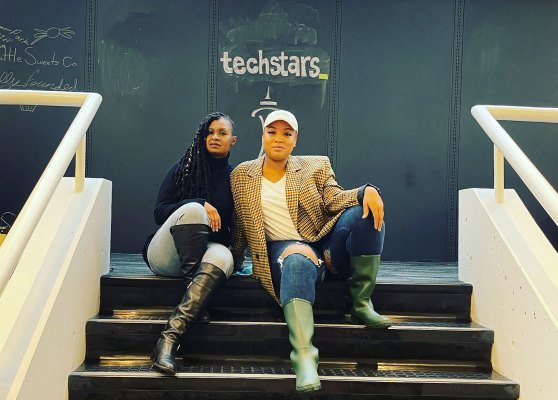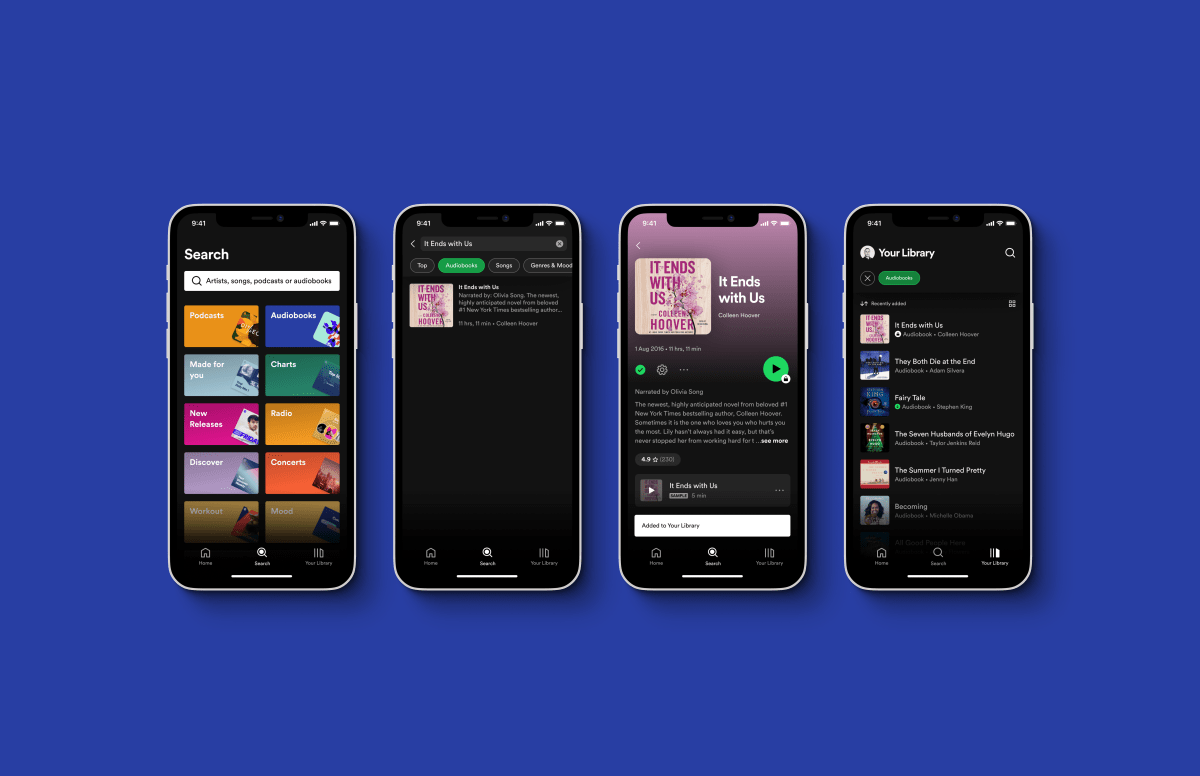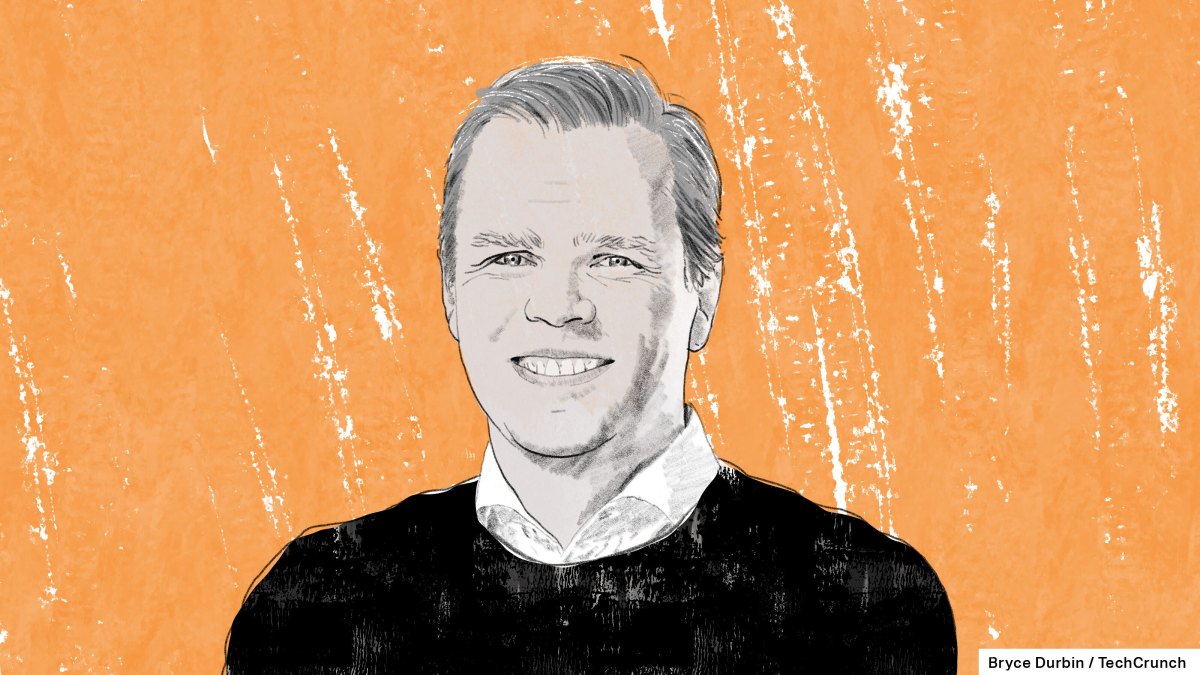Founder of She Matters developed an app for Black women with postpartum depression – TechCrunch
Jade Kearney was experiencing postpartum depression when her daughter was six months old. She was trying to complete her second masters at NYU, while dealing with a mental health crisis and a dearth of mental health pros who could help a Black woman navigate this situation.
So Kearney did what all entrepreneurs do: She developed an app to help solve this particular problem.
She had to teach herself about running a company and figure out funding mechanisms on the fly, all while facing obstacles and roadblocks directly related to being a Black woman founder trying to found a company aimed at other Black women.
Along the way, she did more than start a company. She went out of her way to design workshops and conferences to help other women of color in her position find their way together and to learn from her discoveries and her mistakes.
If that wasn’t enough, she also wrote a book based on the lean startup methodology called Lean While Black, aimed specifically at and adapted for Black founders, whom she said faced a different set of biases and challenges than their white counterparts. She felt she needed to revisit the technique defined by author Eric Ries in a way that made sense for Black founders.
I sat down with Kearney to discuss her experiences and how she has persevered in the face of enormous obstacles.
There should be an app for that
When Kearney began experiencing postpartum depression, she realized how few therapists had been trained to help Black women deal with mental health issues.
“While I was trying to finish my second master’s degree, I had to figure out how to navigate that space alone because between cultural stigma and medical neglect for Black women in the postpartum period, there was really no outlet for me,” Kearney told me.
It was at that point that she decided to start a company to help solve the problem.
“And that’s how I founded She Matters because I felt like I didn’t matter,” she said. While her professors at NYU were sympathetic in terms of giving her extensions to finish her work, she said nobody could really understand the weight of being a Black woman who was experiencing postpartum.
She Matters takes a multifaceted view of Black women’s health problems. First of all it has created a community of therapists, which have been trained in a 12 week certification program, so that they make their therapy culturally relevant to these women.
“Therapists pay a fee to be on the app and be connected to Black women who want therapy. But the thing that’s different with our app and others is that these therapists are culturally competent and understand the very tumultuous relationship that Black women have had in the healthcare system,” Kearney explained.
Women who need therapy come to the platform and sign up to be connected with one of the trained therapists. The company already has 180 trained therapists on the site and another 700 on the waiting list, and when they opened the app out of beta to the public in January, 7000 people signed up with 3400 in the first 24 hours alone, she reports.
The company and the app grew out of a project related to her Master’s Degree in Digital Media Design for Learning at NYU. She needed to build an app as part of a project, and she was trying to figure out what that should look like when she focused on the problem that was playing such a big role in her life at that moment.
“[So I decided] let me just do something that I’m already involved in. I was already involved postpartum, I’m already Black. So let’s create an app for Black moms who have postpartum anxiety and depression and create a community. And so that’s where I really started on my tech journey,” she said.
Building the product
Kearney and her co-founder Marguerite Pierce started building the app that Kearney had envisioned. That started in a classroom and continued as the pair applied to a two-week startup sprint program at Leslie Entrepreneurs Lab at NYU and got it in. There, they continued to refine their idea.
While the app began to take shape, and the two women received good feedback on their idea, the general impression at that point was that they didn’t have a complete startup idea quite yet. They then got into the NYU Launchpad. Excited to get to work, Kearney says she instead encountered racism and a failure to take what she was trying to do — build a business — seriously.
“When I [started saying] that I was a tech founder, I really started to encounter racism. It’s not that I haven’t experienced racism and sexism, but once I decided that this was my title, I started experiencing all these microaggressions,” she said. People wouldn’t acknowledge she was a tech founder in publications or they would ask her to talk about being a Black woman founder, instead of helping her achieve her goals to build a successful startup.
She says racism took shape in other ways, too. One of her mentors at NYU outright discouraged her from applying to incubators like Y Combinator and TechStars.
“I remember being at NYU and one of the mentors said, you know, TechStars and Y Combinator, those are great accelerators, but you won’t get in — and I was like, what?! I won’t get in! What do you mean?! — Oh, well, you won’t get in because you’re a Black woman, and your company is for Black women, and no one really cares about that…We’re in TechStars Seattle right now.”
Other challenges and obstacles
While all founders face challenges getting noticed and funded, the number of Black women founders who get funding is a tiny sliver of the overall pie. Consider that there was $137 billion in venture funding in the first half of 2021 alone. Of that, Black founders got just 1.2%, creating an even bigger challenge to get a piece of that minuscule amount of money.
Kearney certainly recognizes that and has been exasperated by it.
“It’s so challenging, but so is just to be at this level as a Black female. The whole thing is crazy and challenging. So if we’re in the room, we’ve clearly been able to jump over all of the hurdles to get there, and we’re usually one or two in the space. So then to say you’ve gotten here, you’re [unique], and we’re not going to give you money. It’s crazy, it really is. It’s a lot,” she said.
She said it’s been incredibly frustrating trying to raise money. “I’ve had investors say things like ‘I love hip hop’, ‘Are there that many Black women’, or ‘Did you really develop the technology yourselves’?”
She added the frustration is real, but she is determined to keep working.
“I’ve cried more behind closed doors in the last 12 weeks than I have in my entire life, but I refuse to give up because Black women are suffering and the problem is fixable. It’s about community and communication, and it’s about making as much noise as possible in the healthcare industry so they know we will not stop until change in maternal morbidity and patient outcomes drastically improve.”
So far, she has raised $300,000 in angel money and as she completes her time at TechStars she is in talks with multiple investors with the goal of raising $2 million in seed funding.
As she has navigated her own journey as a Black woman founder, she has attempted to help others by writing a book, conducting workshops and conferences and keeping the lines of communication open. Having experienced directly the challenge of being a Black woman founding a company, she says she not only wants to build a successful startup, she wants to be a role model to help others to achieve a similar goal.





Pingback: what to use for mushroom substrate,